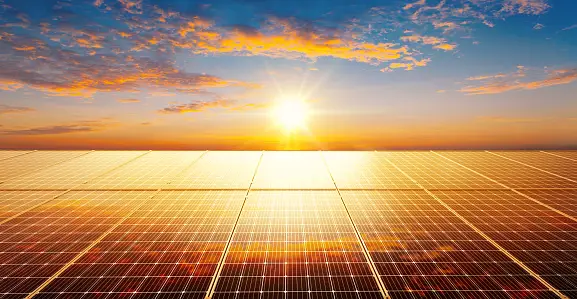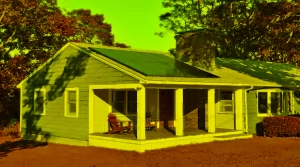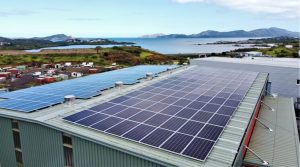In recent years, there has been a significant global shift towards renewable energy sources, and solar power stands out as a key player. For residents of Sterling, Virginia, this shift offers numerous benefits ranging from economic savings to environmental preservation. Sterling, VA is a picturesque town located in Loudoun County, known for its rolling hills and beautiful countryside. However, like many areas, Sterling is also home to a growing population and increasing energy demands. As residents look for ways to reduce their carbon footprint and reliance on non-renewable energy sources, solar power is becoming an increasingly attractive option. In this section, we will explore the potential of solar power in Sterling, VA including the benefits and challenges of adopting this clean and renewable energy source. From understanding the local solar resources and policies to examining the various financing options and incentives available, we will delve into the intricacies of solar power and how it can contribute to a more sustainable and environmentally-friendly future for the town of Sterling.
Understanding Solar Power
Solar power is harnessed from the sun’s energy using photovoltaic (PV) technology that converts sunlight directly into electricity. This form of energy is particularly appealing because it is clean, renewable, and abundantly available. The use of solar panels—devices that contain multiple solar cells made typically of silicon—enables the capture and conversion of sun rays into usable energy.
Economic Benefits of Solar Power in Sterling, VA
Immediate and Long-Term Savings
- Reduction in Electricity Bills: Solar power systems generate electricity that can be used to power your home, which significantly reduces the need for purchased electricity from the utility company. Over time, these savings can be substantial.
- Net Metering: Virginia has net metering policies that allow solar panel owners to sell excess electricity back to the grid. This not only provides additional savings but can also generate income during peak production times.
- Increased Home Value: Homes equipped with solar power systems have been shown to increase in value. Prospective homebuyers value the lower utility costs and environmental benefits associated with solar homes.
Federal and State Incentives
- Federal Solar Tax Credit: Residents can benefit from a federal income tax credit for installing solar power systems. This incentive allows for deduction of a percentage of the cost of installing a solar energy system from your federal taxes.
- Local Solar Rebates: Some areas in Virginia offer additional incentives or rebates for solar power, which further decrease the initial cost of installation and improve the return on investment.
Environmental Benefits
Reduction in Carbon Footprint
Utilizing solar power significantly reduces the amount of carbon emissions, a leading cause of global warming. By switching to solar, households directly contribute less to the emission of greenhouse gases.
Sustainable Energy Production
Solar energy is sustainable and reduces reliance on non-renewable energy sources like coal and oil. This not only preserves these non-renewable resources but also supports overall ecological balance.
Social Benefits
Energy Independence
By generating your own power, you become less dependent on the national grid and more self-sufficient. This independence increases local resilience to energy-related issues like price spikes or supply disruptions.
Job Creation
The solar industry is labor-intensive. Installations and maintenance of solar panels create jobs, boosting the local economy and supporting the community.
Practical Steps to Adopt Solar Power in Sterling, VA
Assessing Solar Potential
- Home Evaluation: Check if your home is suitable for solar panels. Factors such as roof condition, shading, and space play crucial roles.
- Solar Insolation: Sterling receives ample sunlight, making it ideal for solar energy systems. However, assessing specific solar insolation values for your exact location can optimize the system design.
Choosing a Solar Provider
- Research and Reviews: Look for experienced and certified solar installers with good reviews.
- Compare Quotes: Get multiple quotes to ensure competitive pricing and quality service.
Installation and Maintenance
- Permitting: Ensure that all necessary permits are obtained, a process usually handled by the installer.
- Maintenance: Regular maintenance is needed to keep the system running at optimal efficiency. Most solar panels have warranties of 20-25 years.
Educating the Community
Increasing awareness and education about the benefits and practicalities of solar energy can accelerate its adoption in Sterling, VA. Community workshops, seminars, and school programs that focus on renewable energy can enlighten residents about the long-term benefits and sustainability of solar power.
Innovations in Solar Technology
As technology advances, the efficiency and capabilities of solar panels continue to improve. There are now options like solar shingles, which integrate more seamlessly into the aesthetics of traditional homes, and portable solar generators, offering flexibility for different needs. Keeping abreast of these developments can help residents choose the most effective and inconspicuous solutions for their homes.
Overcoming Challenges
While the shift to solar power has many advantages, there are challenges that need addressing to improve its viability:
- Initial Costs: Although decreasing over time, the upfront cost of installing solar panels can be quite high. This barrier can be mitigated through financial planning, loans, and taking advantage of state and federal incentives.
- Weather Dependence: Solar energy generation is directly affected by weather conditions. Technologies such as battery storage systems are becoming more affordable and can store excess power generated during sunny days for use during overcast weather or nighttime.
Community Cooperative Models
Another exciting approach is the formation of solar cooperatives or community solar systems. These models allow residents who may not have suitable roofs or live in apartments to benefit from solar power. By joining a cooperative, residents can buy into a solar power setup located elsewhere and receive credit on their electricity bills for their share of the power produced.
Sustainable Future Initiatives
For a holistic approach to sustainability, combining solar power with other green practices enhances results. This can include:
- Energy Efficiency: Before installing solar panels, homeowners can benefit from optimizing their home’s energy efficiency. This may involve upgrading insulation, using energy-efficient appliances, and practicing energy-saving habits.
- Smart Technology Integration: Using smart thermostats and home energy management systems can further reduce energy usage and manage solar power effectively.
Case Studies and Success Stories
Hearing about or reading case studies of local residents who have successfully transitioned to solar power can be incredibly motivating. These stories not only demonstrate the tangible benefits but also highlight practical insights and tips for seamless integration and problem-solving.
Local Government Support
Encouragement from local government can have a significant influence on the adoption of solar power. Policies that simplify the permitting process, provide tax incentives, and promote solar at the community level are vital. Additionally, governmental leadership in installing solar systems on public buildings can set a persuasive example for the community.
Final Thoughts
The transition to solar power in Sterling, VA, is not merely an economic or environmental choice; it’s a community-focused decision that advances local economies, supports sustainable living, and fosters a resilient community. By embracing solar energy, residents of Sterling are setting a standard for clean, sustainable living that will benefit generations to come.
By considering these aspects and continuing to support the growth and adoption of solar power, residents of Sterling, VA, can make significant strides towards a more sustainable and empowering future. As more individuals and communities come on board, the collective impact will pave the way for a brighter, greener tomorrow.
Frequently Asked Questions (FAQs) About Solar Power in Sterling, VA
1. How much does it cost to install solar panels in Sterling, VA?
The cost of installing solar panels can vary based on several factors including the size of your system, the type of panels, and the complexity of your installation. On average, homeowners in Sterling, VA might expect to pay between $15,000 and $25,000 for a complete solar installation before any incentives or rebates. However, with federal tax credits and potential state and local incentives, this initial cost can be significantly reduced.
2. Are there any local incentives for installing solar panels in Sterling, VA?
Yes, residents of Sterling, VA may benefit from several incentives. While specific local incentives can vary, commonly available options include tax rebates, solar renewable energy certificates (SRECs), and possible local grants or solar programs. Additionally, the federal solar tax credit, which allows you to deduct 26% of the cost of installing a solar energy system from your federal taxes, is also available.
3. Is my home suitable for solar power?
To determine if your home is suitable for solar panels, you should consider several factors:
- Roof Condition: Your roof should be in good condition and relatively new.
- Sun Exposure: Your roof should have little to no shade during the day.
- Roof Orientation and Tilt: South-facing roofs with a 30-45 degree tilt are typically ideal.
- Space: There should be enough space on your roof to install the necessary number of panels.
It’s advisable to consult with a professional solar installer for an in-depth assessment.
4. How long do solar panels last?
Solar panels are generally very durable and designed to withstand the elements for many years. Most solar panels come with a warranty of 25-30 years. However, they can continue to produce electricity at a slightly reduced rate even beyond their warranty period.
5. What maintenance do solar panels require?
Solar panels require minimal maintenance. It is generally recommended to keep the panels clean and clear of debris, leaves, and snow to ensure they operate efficiently. Periodic checks by a professional can help address any potential issues early, although major problems are rare.
6. Will installing solar panels increase my home’s value?
Yes, installing solar panels can increase the value of your home. Studies have shown that homes with solar energy systems sell for more than homes without them. They are seen as upgrades, just like a renovated kitchen or a finished basement, and many homebuyers are willing to pay a premium for a home with a solar installation, especially as energy costs continue to rise.




